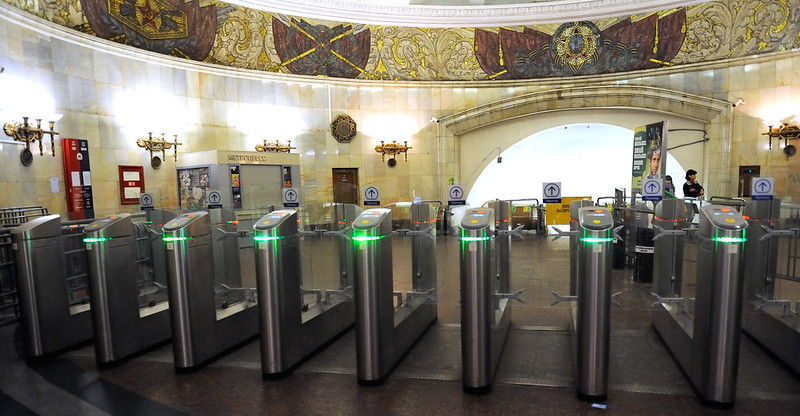
Photo: Tim Adams (Flickr)
Face recognition payment pilot launched on Moscow’s metro
03 August 2021
by Christopher Carey
Moscow Metro has started tests of Face Pay – a service where passengers will be able to pay for transport using facial recognition technology.
The city’s Department of Transport says the technology will be trialled on one metro line initially, and involve a focus group of 1,000 residents, with the figure set to grow as the test expands to all lines.
Maxim Liksutov, Moscow’s Deputy Mayor for Transport, said: “We are starting the most important stage of the Face Pay testing — involving our passengers.
“Metro employees already use this service and have made more than one million successful payments with it. We will test this technology gradually, from line to line, starting with Line 4.”
Passengers can apply to take part in the project through the Department’s website, and those selected will be able to pass through gates with a special black sticker, with fares automatically deducted from a linked credit or debit card.
The Department says those taking part have the right to withdraw from the trials at any time, and the personal data of participants is securely stored and not shared with anyone.
Three Russian-made facial recognition systems from VisionLabs, Ntechlab and Tevian will be used in the initial rollout.
Privacy concerns
Facial recognition technology is already widely used on the city’s transit network by the security services to identify those suspected of having committed a crime.
The technology has also increasingly been rolled out in retail outlets in the Russian capital.
Privacy campaigners have raised concerns about the proliferation of the technology, however, and last year a number of lawsuits were filed against Moscow’s Department of Technology after a volunteer from digital rights NGO Roskomsvoboda was able to purchase data about their movements across the city on the dark web.
Anna Kuznetsova paid approximately US$200 for 79 photos that identified her at locations in the city, alongside times and addresses.
“Any crazy guy can stalk you using this; criminals can check when and where you go and steal from your apartment or hurt you…anything can happen,” she said.
Image: Tim Adams (Flickr)











